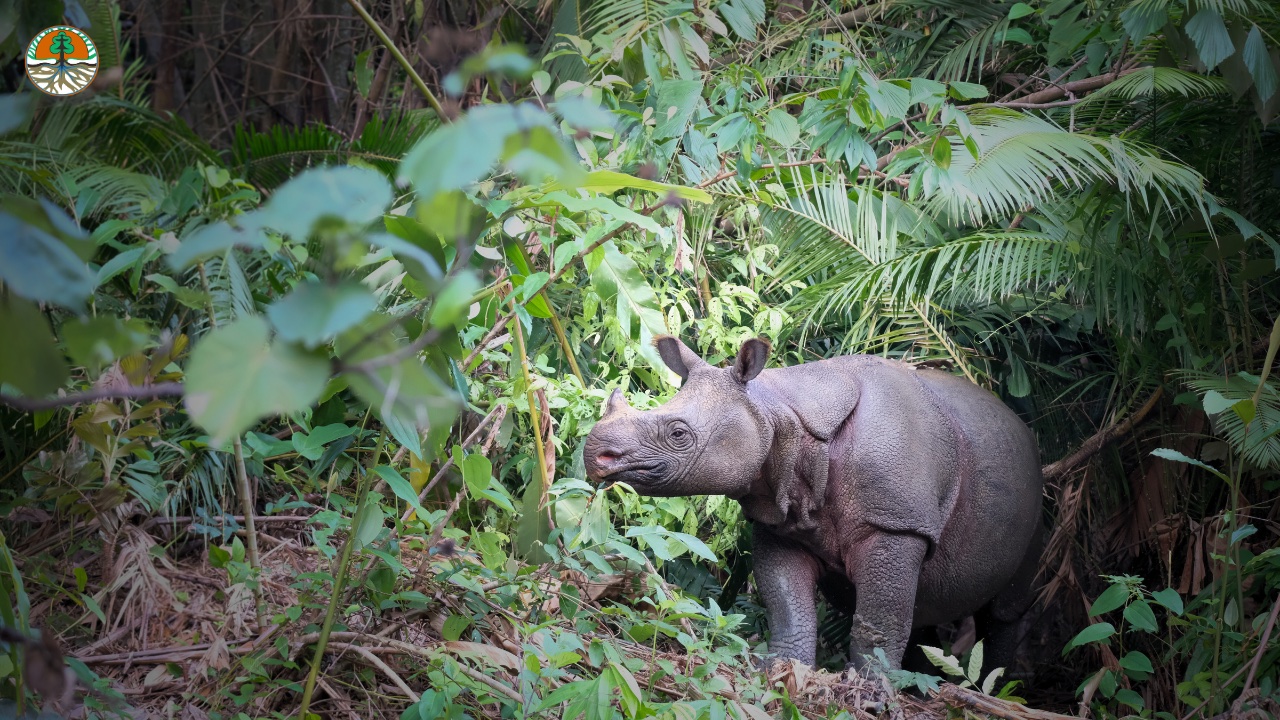Justice for Javan Rhinos

In a surprising turn of events, a rhino poacher in Indonesia just received a higher sentence than what prosecutors originally recommended. On June 5, 2024, the panel of judges at Pandeglang District Court declared defendant Sunendi guilty of poaching Javan rhinos and sentenced him to 12 years in prison and a fine of 100 million rupiah (~$6,130 USD). This sentence is particularly surprising considering most Indonesian court sentences are less than what the prosecutors recommend.
Last year, camera traps documented Sunendi illegally entering Ujung Kulon National Park with firearms. He was apprehended in November, 2023 and brought to trial starting April, 2024 where he testified to killing six Javan rhinos from 2019 to 2023 with his gang.
After hearing testimonies and presenting evidence, prosecutors had only asked for a 5-year and 10 million rupiah punishment – which is currently the maximum for wildlife crime in Indonesia. Sunendi was also charged with illegal possession of firearms and camera-trap theft, which was not accounted for in the prosecution’s sentencing recommendation. Government officials and conservationists agreed that this recommendation undervalued the crimes committed and would not be an effective deterrent against future poaching crimes. Residents of the Pandeglang community commented on the prosecution’s request, asking the judges for a stronger punishment so that this doesn’t happen again to their rhinos. Thankfully, the judges considered all of the charges and the weight of these crimes when deciding their final sentencing.
IRF commends all involved with this investigation and case – the government agencies, police, local NGOs and the community members who spoke out in support of their rhinos.
“This punishment won’t bring back the poached rhinos, but it sends a strong message and should act as a deterrent to anyone considering wildlife crime in Indonesia,” said Nina Fascione, executive director of the International Rhino Foundation.
Banten Police have made other critical arrests related to this case, including the remaining members of Sunendi’s poaching gang, most members of a second poaching group, and two middlemen – buyers and sellers of the rhino horn who are expected to go on trial soon. The other suspected poachers reportedly confessed to police that they killed a total of 26 Javan rhinos, which would be detrimental to the species’ already low population number.
As long-time funders of Indonesian rhino conservation, we are encouraged by this outcome and we hope all agencies involved use this momentum to complete their investigation of what happened and how, as well as bringing all criminals involved to justice to prevent any future poaching attempts in Indonesia.
“It will take time to undo the damage done by these criminals, but we have brought Javan rhinos back from the brink of extinction once, and we can do so again,” said Fascione. ”We know that despite this poaching activity, Javan rhinos continue to breed and have calves, so if stronger protections are put in place and we put an end to poaching, they’ll rebound again. This strong sentence is a significant step to ensuring no one tries to poach a rhino in Indonesia again.”

